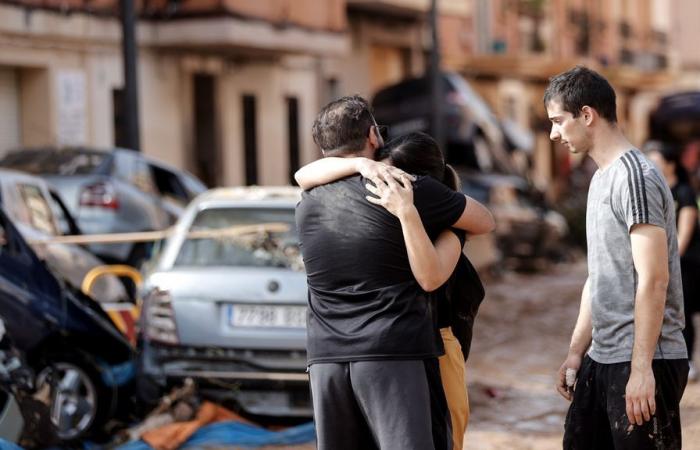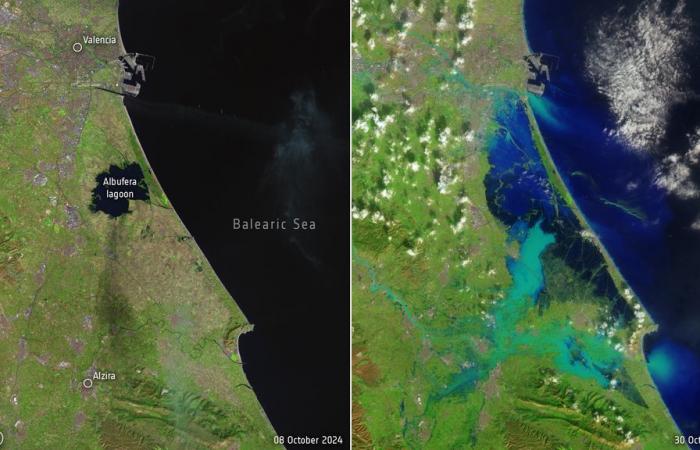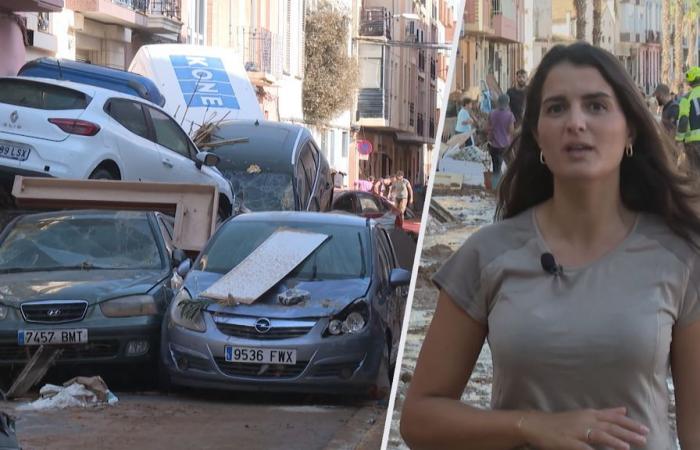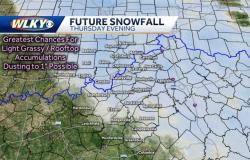NOS News•today, 11:35
Rain is expected again in Spain, three days after unprecedented flooding killed at least 158 people. In addition, there is a threat of a dam burst in Valencia due to the accumulation of water.
A Spanish weather agency has issued warnings of heavy rainfall in Tarragona, Catalonia, and part of the Balearic Islands.
The dam, located in Sot de Chera, is being closely monitored. Fifty people have been evacuated as a preventive measure. The threat level is stable and it appears that the water is starting to recede, writes the newspaper El Pais.
No electricity and water
The storm caused power outages in almost 150,000 households. Three-quarters of the houses now have power again, but there are still areas that are difficult to contact. There are also houses where no running water is available.
500 soldiers are coming to the region today to help clear the rubble and recover the bodies. Recovered victims were transferred to the stock exchange building in Valencia, among other places, because there is a shortage of places to store bodies elsewhere.
The extent of the material damage is estimated to be in the billions of euros. For insurers it will be one of the most expensive disasters in Spanish history. There are companies that want to donate money, for example Real Madrid has already donated 1 million euros.
Looting is also taking place in mainly isolated villages. Videos of people emptying a supermarket can be seen on social media. On Wednesday, the police arrested 39 people.
Officers are being deployed to prevent further thefts from homes, cars and shops.
Cold pit
The extreme weather was caused by a weather phenomenon, a so-called cold well: that is a bubble of cold air in a low-pressure area high in the air. It is wedged between high-pressure areas and is therefore difficult to escape.
The Mediterranean Sea is currently 20 degrees, while in the cold pit it is -20. “That large temperature difference creates strong vertical air currents, which can quickly form enormous rain clouds. A lot of rain can fall in a short time, especially in a mountainous area,” NOS weatherman Marco Verhoef said earlier.
As the earth warms, these types of weather extremes will become more common. The water in the Mediterranean Sea was warmer than ever this summer: a water temperature of 28.47 degrees was measured in August. This month the water is also a lot warmer than normal.
Correspondent Miral de Bruijne spoke to residents of the hardest-hit town yesterday:
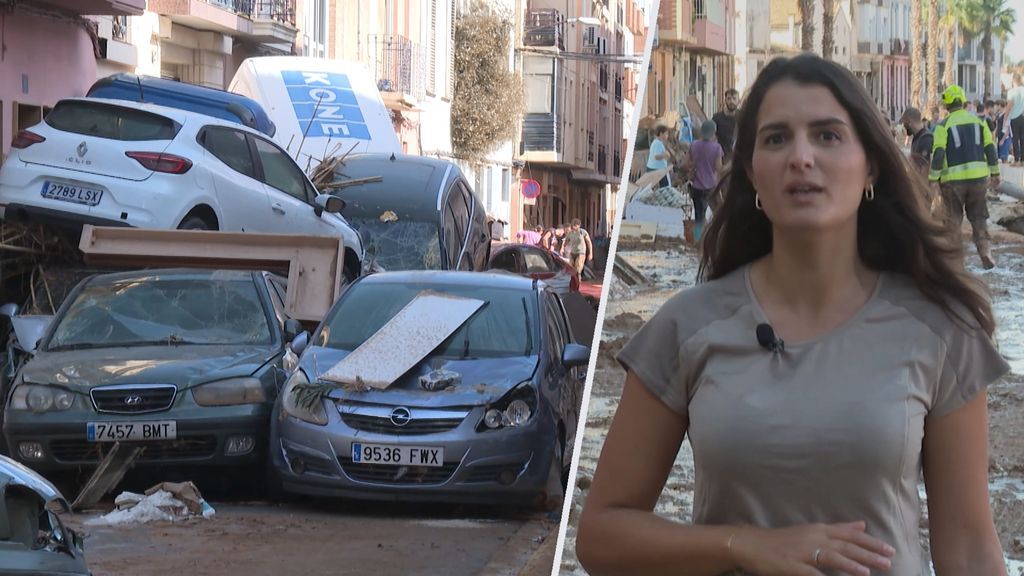
Spanish Paiporta residents defeated after severe weather: ‘We have lost everything’

